
India has voted, and the 1.2 billion-person democracy delivered a resounding victory to the right-wing party of Narenda Modi on May 16. Modi was named India’s next prime minister on May 20. This is the first time since India won independence in 1947 that a rightist party has won a clear majority in parliament.
The margin of victory for Modi’s party, the BJP (Bharatiya Janata Party) surpassed its own expectations, bagging some 286 seats out of the 543 in India’s parliament, the Lok Sabha, thus winning a majority outright. With other parties that formally ally with the BJP, the coalition won 336 seats. The ousted ruling Indian National Congress party (Congress for short), fell to an all-time low of 44 seats, an abysmal figure for a party that ruled independent India for most of its 67 years. India held its first election after overthrowing British colonial rule in 1947.
The left alliance, in which India’s two major Communist Parties participate, garnered only 12 seats with nine of the 12 going to the Communist Party of India-Marxist, a number too low to keep its national party status. The Communist Party of India won one seat.
The Modi victory is being compared to the victories of Margaret Thatcher in the UK in 1979 and Ronald Reagan in the U.S. in 1980, which in both cases ushered in an era of corporate and financial deregulation, privatization of public services and entities, union-busting and other economic-social policies detrimental to working people. Echoes of Reagan’s famous “Morning in America” speech rang throughout Modi’s May 20 speech. Like Reagan, Modi referred to himself as “optimist” by nature, and he brandished his populist credentials, saying his government would be “dedicated to the poor, millions of youth and mothers and daughters who are striving for their respect and honor. Villagers, farmers, Dalits [formerly known as “untouchables”] and the oppressed, this government is for them, for their aspirations and this is our responsibility. … I have seen people who had only one piece of clothing on their body but had the BJP’s flag. This section is looking at us with hope and aspirations. …people have voted for hope.”
Notably missing from the list is a mention of India’s 177 million Muslims. As chief minister in the state of Gujarat, Modi presided over the worst sectarian violence since the partition of India in 1947. In 2002, a fight between Hindu extremists and Muslim tea vendors at a train station in Godhra, Gujarat, which resulted in a fire that killed 47 Hindus on a train for a religious pilgrimage. In response, Hindu far-right extremist groups began a deliberate campaign of violence against any and all Muslims.
M.K. Moorthy, reporting for People’s World at the time, wrote, “Hindu fascists took charge with the blessings of the state apparatus governed by BJP Chief Minister Narendra Modi. Many fact-finding missions found that the Modi government allowed mobs of armed men to attack the Muslim community and burn down and destroy Muslim-owned businesses without any interference from the police. After many days the national government was forced to send in the Indian Army to gain control.”
Because of Modi’s role in the carnage, which resulted in 2,000 deaths, the United States twice refused him a visa to visit.
Capitalizing on corruption scandals involving the Congress party, the BJP jumped into the leadership void, projecting Modi as its prime ministerial figure much like a U.S. presidential election. Flanked by PR firms and armed with corporate cash, Modi campaigned nonstop for his party. Hindu nationalist groups conducted grassroots campaigns in support of Modi, while the BJP leader tried to distance himself from the extremists and quell fears among the electorate as well as internationally, especially among corporate investors anxious to get more of a foothold in the Indian market.
In addition to the well-grounded fears of increased sectarian violence with a BJP victory, many say that Modi’s populist rhetoric is a cover for the BJP’s pro-corporate agenda, similar to the Thatcher-Reagan years.
“If you define Thatcherism as less government, free enterprise, then there is no difference between Modi-nomics and Thatcherism,” Deepak Kanth, a London-based banker now collecting funds as a volunteer for the BJP, told Reuters.
The London-based Economist declared, “The last [Congress Party-led] government dithered and was preoccupied with bolstering India’s welfare state. India’s new rulers must be more strategic and ruthless.”
But, given the tremendous problems of poverty and unemployment that exist side by side with tremendous wealth in India, Modi’s election has created high expectations for him to deliver on his promises to everyone regardless of caste, class, gender or religion.
As one commenter at The Hindu wrote: “All because of one man named Modi. The entire nation narrowed their focus on him thinking that he would deliver to them what he had done to Gujarat. We will see what he is going to do. The people are not interested in ‘Bullet’ trains, nor in ‘Ram’ temples. Let him provide to the people safe drinking water, safety in travels, communal harmony and usher in a corrupt free society. Let him also keep in his mind that the last BJP government was not there for a second term.”
Photo: India’s next Prime Minister Narendra Modi addresses a gathering of supporters in his home state of Gujarat after his landslide victory, May 16. (AP/Dharmesh Jobanputra)

MOST POPULAR TODAY

Zionist organizations leading campaign to stop ceasefire resolutions in D.C. area

High Court essentially bans demonstrations, freedom of assembly in Deep South


Afghanistan’s socialist years: The promising future killed off by U.S. imperialism

Communist Karol Cariola elected president of Chile’s legislature


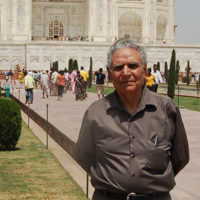
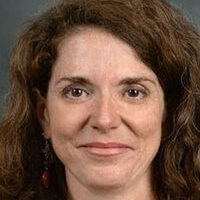
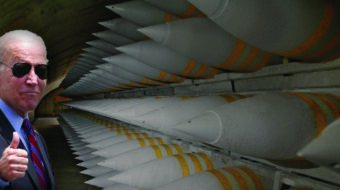
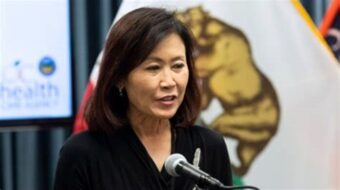
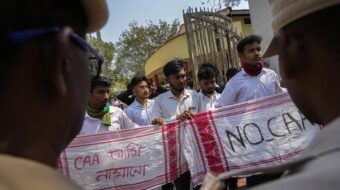
Comments